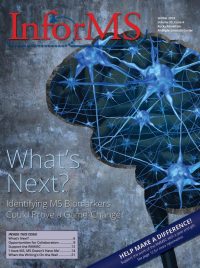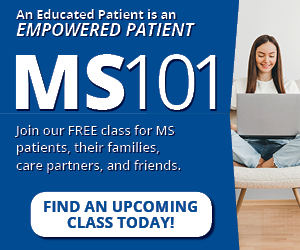An Interview with Dr. Timothly Vollmer
InforMS: Many advancements and research in MS are really leading to neuro-reparative therapy. Can you tell us what’s changed to spur that?
Dr. Vollmer: I think there is this evolving story about how astrocytes act in MS, and it’s really important. There’s a paper published earlier this year by John Prineas, an Australian neuro-pathologist. He makes a strong argument that the astrocyte is actually the primary target, not the myelin-forming cells or myelin.
When I was in training, I thought about focusing on astrocytes. I told a colleague I wanted to study astrocytes; he told me I was going to waste my career because they weren’t interesting.
But it turns out, they are very interesting.
Every nerve cell, every synapse, and every oligodendrocyte are encapsulated in a little capsule of astrocyte membrane. So the astrocytes surround them, and the astrocytes are maintaining that special micro-environment that those cells need to survive and function optimally. Half of the brain’s volume is astrocytes. I think astrocytes are the new target.
The focus in MS has been on oligodendrocytes and even now that’s where most of the NIH (research) dollars are being spent. But it’s loss of neurons that cause the disability, not the loss of myelin. Astrocytes appear to be playing a key role both in injury process and the opportunity for the reparative process.
InforMS: How can this change in thinking change the way we treat MS?
Dr. Vollmer: The way we think about MS is really changing because the astrocyte is becoming a major therapeutic target. Most people treating MS today don’t believe astrocytes are key to the process. But astrocytes can function as part of the immune system in certain conditions which is what they do in MS. And in this process of functioning as part of the immune system they produce noxious molecules that can damage and kill neurons and oligodendrocytes, the myelin forming cells. But astrocytes can also be influenced to become more neuroprotective cells with certain drugs.
There’s been some work done recently with a drug we already have, Gilenya, demonstrating that the original concept of how the drug work was wrong. What it really does is inhibit pro-inflammatory astrocytes. And, there was recently released results of treating rats with a MS like disease with metformin (a drug for type II diabetes) that improved recovery of function in the rats apparently by inducing these neuroprotective astrocytes. I predict astrocytes will be receiving much more attention from MS researchers in the near future.







